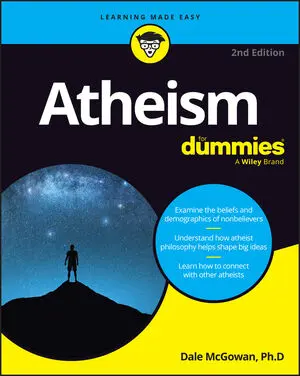Atheism is a big umbrella. There are about as many ways to disbelieve as there are ways to believe — different degrees, different emphases, and different expressions. It covers anyone who doesn’t believe in a supernatural god or gods. But under that umbrella are many shades and grades of disbelief and many people with different ways of approaching and expressing it.
Atheists become atheists for many different reasons, and it rarely has anything to do with unanswered prayers or major life calamities. In fact, such a major trauma drives people into belief at least as often as it drives them out of it.
Here are some examples:
Antitheists (atheists who actively oppose religion and work toward a world without it)
Accommodationists (atheists who emphasize the common ground between the religious and nonreligious rather than the differences)
Agnostics (people who emphasize their uncertainty about the question of God’s existence and often claim that it’s unknowable)
Humanists (people who focus on how to live a good human life in a natural universe)
Religious atheists (including many Buddhists, Hindus, Unitarians, and Jains who keep their religious identities and philosophies without bothering any gods)
Freethinkers (people who form their opinions about the universe without the undue influence of religious authority)
Unaffiliated or “None” (they’re not religious, but generally not interested in any label at all, thank you very much)
Even some religious opinions (like Deism and pantheism) exist that are so far removed from any traditional conception of God that many people include them under the atheist umbrella. And a single nonbeliever can, and often does, claim several of these labels at once. They emphasize different things, but most aren’t mutually exclusive.





